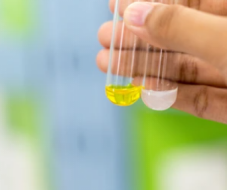
Arsenic is a common carcinogen in the environment. Arsenic exists in nature in various forms, and the arsenic form strongly influences its toxicity, mobility, and fate, with inorganic arsenic being more toxic than organic arsenic. The latter is usually produced by biological methylation of arsenic monomethyl arsenic, dimethyl arsenic, and volatile, low-toxicity trimethyl arsenic. Biomonitoring, on the other hand, provides direct and rapid feedback on contaminants in the ecological environment. Biomonitoring is primarily targeted at species that respond to changes in environmental status - indicator species. Mollusks can fill this role.
Lifeasible can perform arsenic testing in mollusks by analyzing the levels of the heavy metal arsenic and thus assessing their health risk. Mollusks are tested for arsenic not only to monitor contaminants in the environment but also to analyze the effects of edible mollusks on humans.
The mollusks to be tested are rinsed with tap water, washed, and drained with ultrapure water; the portion to be tested is taken, weighed, encapsulated, lyophilized, and then weighed again to calculate the moisture content of the sample. The lyophilized samples of mollusks are ground into a homogeneous powder.
A quantitative amount of the sample to be tested was weighed, and a mixture of concentrated nitric acid and concentrated hydrogen peroxide was used as the digestion solution for microwave digestion. After digestion, the volume was fixed with ultrapure water.
The arsenic content of the digested and fixed samples was determined. The inorganic arsenic content was determined using the ICP-MS instrument, and the inorganic arsenic content was converted to 10% of the total arsenic value of the determination. The samples, standard solutions, and blanks were tested in parallel in three groups, and the mean values were calculated.
The single-factor pollution index method was used to evaluate the status of heavy metal pollution in mollusks. The formula for calculating the single factor pollution index Pi is Pi = Ci /Si, where Ci and Si represent the measured value and evaluation standard of the I-th heavy metal pollutant.
According to the evaluation model recommended by the U.S. Environmental Protection Agency, the health risk evaluation of carcinogenic chemical substances and the health risk evaluation of non-carcinogenic chemical substances were divided.
![]()
Ric is the average annual personal cancer risk of carcinogenic chemical i via the ingestion route, dimensionless; Di is the average daily exposure measure per body weight (mg/kg) of carcinogenic chemical i via the ingestion route; qi is the carcinogenic intensity factor of carcinogenic chemical i via the ingestion route; L is the average human life span.
![]()
Rni is the average individual annual risk of health hazards caused by non-carcinogenic chemical i via the ingestion route, dimensionless; Di is the average daily exposure measure per body weight (mg/kg) of non-carcinogenic chemical i via the ingestion route; RfDi is the highest reference measure of chemical substances that enter the human body via the ingestion route of non-carcinogenic chemical i and do not cause adverse effects on the human body; L is the average life span of a person.
In addition to the above analyses and tests, we can also provide analysis of the decomposition status of heavy metal contaminants in mollusks.
If you are interested in our services, or if the service you want is not listed, please feel free to contact us, and we will get back to you as soon as possible.
Lifeasible has established a one-stop service platform for plants. In addition to obtaining customized solutions for plant genetic engineering, customers can also conduct follow-up analysis and research on plants through our analysis platform. The analytical services we provide include but are not limited to the following:
Get Latest Lifeasible News and Updates Directly to Your Inbox
Adaptive Evolutionary Mechanism of Plants
February 28, 2025
Unraveling Cotton Development: Insights from Multi-Omics Studies
February 27, 2025